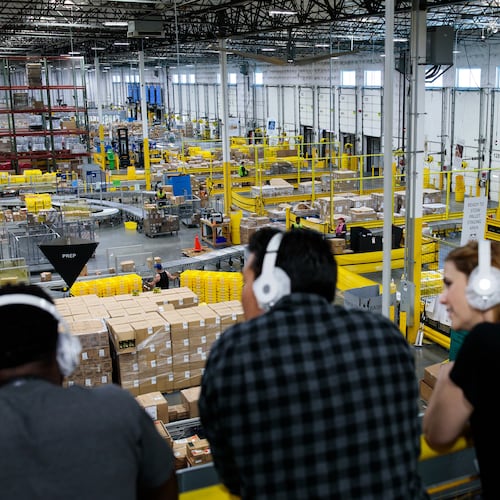Home Depot
Frank Blake, 65, became chief executive officer of Home Depot in 2007 after the departure of former head Bob Nardelli. A lawyer by training, Blake, who will give up his CEO job Nov. 1 but remain board chairman, has worked in the private and government sectors, including as general counsel at General Electric and deputy secretary for the U.S. Department of Energy. He came to Home Depot in 2002 as executive vice president for business development and corporate operations.
Challenges
Blake’s promotion to CEO came amid a slowing economy and low company morale blamed on his predecessor, Nardelli, with whom he worked at GE. The company’s stock was struggling as the housing industry began its meltdown. The company also suffered from the creation of HD Supply, a wholesale business that was not a good fit for the world’s largest home-improvement retailer.
In an interview early with The Atlanta Journal-Constitution early in his tenure, Blake described the company as “mature” and declared that the days of huge revenue growth were probably over. He wanted to get back to basics, which included taking a surgical look at store growth and the company’s performance in markets abroad, namely China.
He also needed to mend fences with investors, who fumed over Nardelli’s more than $200 million severance package and the decision of the entire board to skip the annual meeting during Nardelli’s last year.
What he did
Blake put the brakes on the expensive strategy of opening lots of new stores. Instead, he focused on squeezing greater profits at each location and reassessing the company’s merchandise mix.
More recently, the company has beefed up its online presence to better compete with web retailers on delivery speed. The company is opening fulfillment centers — it opened a 1 million-square-foot facility in Locust Grove earlier this year — to get more merchandise in central locations closer to stores.
Blake also sold HD Supply (though the company still owns a small percentage of the business), closed Home Depot’s 12 stores in China and shed its high-end Expo brand.
There were also layoffs. Thousands lost their jobs during the peak of the recession in stores throughout Mexico, Canada and the United States, as well as at the company’s headquarters in Cobb County.
How he led
Blake has been described as mild-mannered and soft spoken, a shift from the more larger-than-life styles of his predecessor and company founders, Bernie Marcus and Arthur Blank. Coming on the heels of Nardelli’s more controversial leadership, Blake restored employee morale, as well as the company’s mojo on Wall Street.
It was a slow, methodical climb. Despite the economic slump, Blake stayed focused on fine-tuning Home Depot’s core business and emphasizing improvements in customer service. That discipline has been rewarded as the company’s total shareholder return, including dividend reinvestment, has exceeded 150 percent during his tenure —- far outstripping the S&P’s average return.
New leader
Craig Menear has a long resume at Home Depot, including several merchandising roles and most recently president of U.S. retail. Before Home Depot, he worked at various retailers, including Ikea, Builders Emporium, and Montgomery Ward.
His challenge will be to continue expanding Home Depot’s web growth and improving the company’s infrastructure as bricks-and-mortar operations find ways to co-exist with the digital world.
Cybersecurity also will be a major concern for the company. Efforts to avoid the potential hacking that the company discovered this past Tuesday is likely to become a massive ongoing cost of business in the future.
About the Author
Keep Reading
The Latest
Featured


